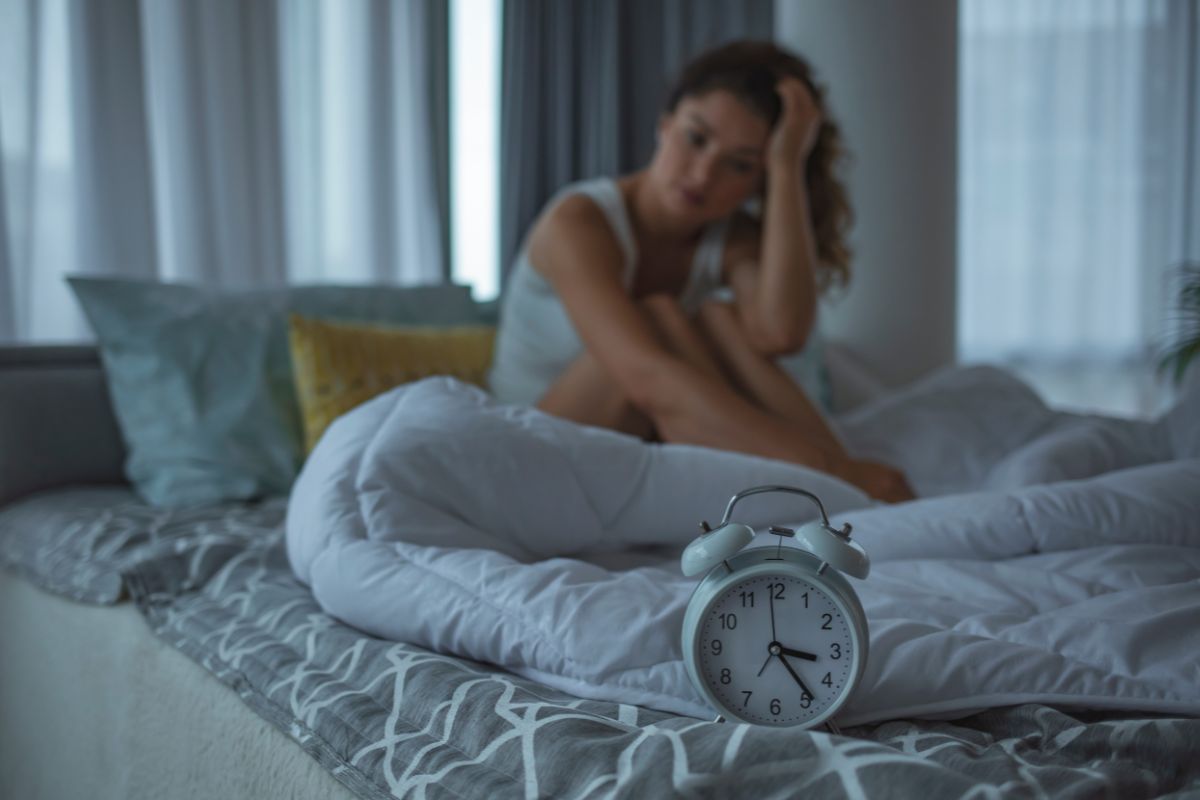You go to bed. You lie there. You flip your pillow, count sheep, turn on a podcast, and even close your eyes tighter. But sleep doesn’t come. Hours pass, and the clock keeps ticking. Sound familiar?
If you are also among the people who have experienced all these symptoms, you might have insomnia. Insomnia makes you feel tired during the day, slows your thought process, and makes you feel grumpy and irritable, and also you might also feel sad or confused. But there is good news. You don’t always have to take medicines to sleep better.
In fact, many people get great results just by making a few small changes at home. These home remedies are easy, safe, and often very effective. Best of all, they cost little to nothing and can fit into your daily life.
Let’s walk through some of the best home remedies for insomnia. These are not theories. They are simple habits that can help you fall asleep faster and stay asleep longer.
Start with Your Bedroom
Your sleep space makes a big difference. If your room feels too hot, too bright, or too loud, your body will have a hard time shutting down.
- Keep it cool: A room that’s too warm can make you toss and turn. Try setting the temperature between 60 and 67 degrees Fahrenheit. This is the range where most people sleep best.
- Block the light: Streetlights, phone chargers, or even a hallway light can make it hard to sleep. Try blackout curtains. You can also use a soft eye mask.
- Keep it quiet: If noise is a problem, use earplugs or a fan. Some people find that white noise helps them sleep more deeply.
- Make your bed for sleep only: Don’t work, eat, or scroll on your phone in bed. Teach your brain that your bed is a place to rest.
Set a Sleep Routine
Just like little kids, grown-ups also sleep better with a routine. If your sleep time changes every night, your body gets confused.
- Go to bed and wake up at the same time: Yes, even on weekends. This helps your body know when it’s time to rest and when it’s time to wake up.
- Start winding down one hour before bed: Turn off bright lights. Put away screens. Do something relaxing. This signals to your brain that bedtime is coming.
- Try a short bedtime habit: Wash your face, change into pajamas, and read a book. Do it in the same order each night. These little steps act like sleep signals for your body.
Let Nature Help You
Your home contains multiple items that help you fall asleep more easily.
- Chamomile Tea: Drinking chamomile tea can help you sleep better, as it has a calming effect. Drink a cup about thirty minutes before your bedtime.
- Lavender oil: Lavender flower has a calming scent. Add some drops of lavender oil to your pillow or use a diffuser that creates a calming atmosphere in your bedroom.
- Bananas: Bananas contain magnesium and potassium, which are helpful in making your muscles relax. Have a banana with peanut butter, which is an excellent evening snack.
- Warm milk with honey: This is a drink that our grandmothers swear by. Warm milk and honey can make you feel safe and sleepy. To prepare this drink, heat the milk gently and then add a small amount of honey.
Calm the Mind Before Bed
For many people, the body is ready to sleep, but the mind keeps racing. Thoughts spin around: work problems, bills, social drama—the list goes on. That makes it hard to fall asleep.
- Try a worry journal: Keep a notebook by your bed. Before sleep, write down your thoughts. It could be your to-do list for tomorrow or just how your day went. Putting it on paper gets it out of your head.
- Deep breathing: Take a deep breath in through your nose. Hold it for four seconds. Let it out slowly through your mouth. Repeat this five to ten times. It tells your nervous system that all is well.
- Stretch a little: Gentle stretches before bed can help release stress from your body. Focus on your neck, shoulders, and legs. You don’t need a yoga mat or any gear. Just a quiet space and a few minutes.
Watch What and When You Eat
Your stomach affects your sleep more than you may think.
- No big meals late at night: Late dinners are a huge no, especially if timed just before sleeping; it resets the body’s sleeping clock and forces it to start working right after you sleep, when the body has to digest late meals. Finish your dinner a few hours before sleeping, at least 120-180 minutes.
- Skip sugar and caffeine: Chocolate, coffee, and some sodas contain caffeine, as well as many other visitors, including sugared soda. Try making a habit of checking food and drink labels; these need to be avoided after lunchtime.
- Ponder sleep-inducing snacks: When you feel peckish near bedtime, consider having something light. A small amount of almonds, a piece of toast, or a little oatmeal may do the trick.
Use the Morning to Help Your Night
What you do during the day also shapes how you sleep.
- Soak up the sun: If you want to increase the quality of your sleep, make a point to step outside for around ten to fifteen minutes in the morning. Sunlight exposure can help your body tune its internal clock, and you will sleep at the appropriate time.
- Get active: Try to do light exercises or take a stroll during the day, as this will enhance the quality of your sleep. Do not do strenuous exercises close to bedtime, as this may hamper your sleep pattern.
- Avoid long naps: In the daytime, if you want to take a nap, limit it to 30 minutes only. Longer naps can negatively affect your sleep at night.
Other Helpful Tricks
- Put your phone away: Phones are one of the biggest reasons people can’t fall asleep. The light tricks your brain into staying alert. Try to stop using your phone at least one hour before bed.
- Use a weighted blanket: Many people feel more relaxed under a blanket that’s a bit heavier than normal. It feels like a gentle hug and can reduce tossing and turning.
- Try the fifteen-minute rule: If you can’t sleep after fifteen minutes, get out of bed. Sit in a chair, read a boring book, or do something quiet until you feel sleepy again. Then go back to bed. This keeps your bed linked with sleep, not frustration.
When to See a Doctor
Consult your doctor if you have tried the above-mentioned home therapies and still cannot sleep after two weeks. Sleep disorder or insomnia can be the result of some underlying organic issue in the body, such as anxiety or sleep apnea. If it is so, consult a doctor so that the problem is properly diagnosed and treatment is given.
Final Thoughts
Sleep should be easy, but it becomes a battle for many when they can’t sleep. The most important factor is to give your mind and body the right signals so that you can sleep better. Keep your bedroom calm. Stick to a routine. Let nature help with tea, scents, and soft light. Be careful about what you consume before bed.
Be compassionate to yourself. Sleep takes time. Change takes time. But with small daily steps, better rest is possible.
Try one or two of these remedies tonight. You might be surprised by how well they work.












